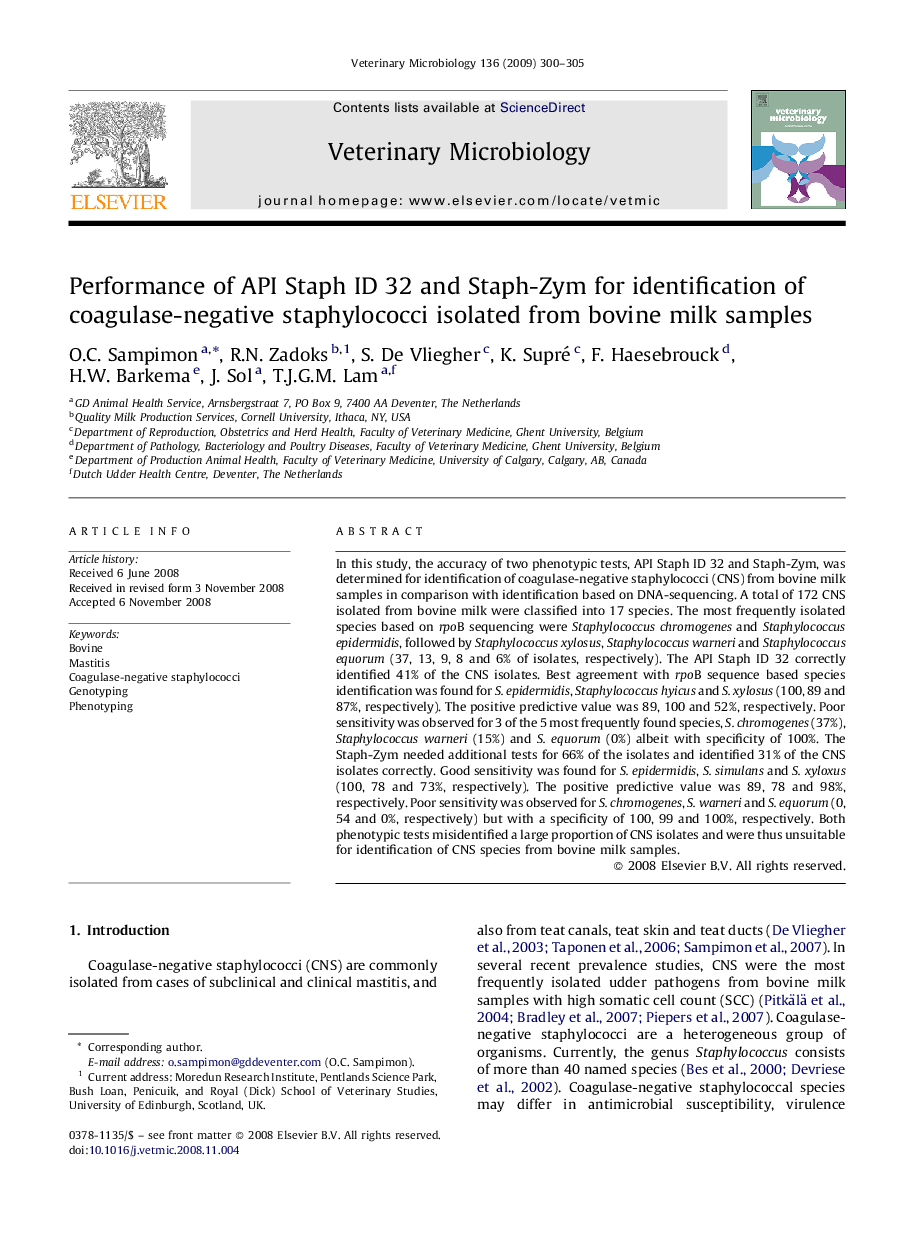| Article ID | Journal | Published Year | Pages | File Type |
|---|---|---|---|---|
| 2468459 | Veterinary Microbiology | 2009 | 6 Pages |
In this study, the accuracy of two phenotypic tests, API Staph ID 32 and Staph-Zym, was determined for identification of coagulase-negative staphylococci (CNS) from bovine milk samples in comparison with identification based on DNA-sequencing. A total of 172 CNS isolated from bovine milk were classified into 17 species. The most frequently isolated species based on rpoB sequencing were Staphylococcus chromogenes and Staphylococcus epidermidis, followed by Staphylococcus xylosus, Staphylococcus warneri and Staphylococcus equorum (37, 13, 9, 8 and 6% of isolates, respectively). The API Staph ID 32 correctly identified 41% of the CNS isolates. Best agreement with rpoB sequence based species identification was found for S. epidermidis, Staphylococcus hyicus and S. xylosus (100, 89 and 87%, respectively). The positive predictive value was 89, 100 and 52%, respectively. Poor sensitivity was observed for 3 of the 5 most frequently found species, S. chromogenes (37%), Staphylococcus warneri (15%) and S. equorum (0%) albeit with specificity of 100%. The Staph-Zym needed additional tests for 66% of the isolates and identified 31% of the CNS isolates correctly. Good sensitivity was found for S. epidermidis, S. simulans and S. xyloxus (100, 78 and 73%, respectively). The positive predictive value was 89, 78 and 98%, respectively. Poor sensitivity was observed for S. chromogenes, S. warneri and S. equorum (0, 54 and 0%, respectively) but with a specificity of 100, 99 and 100%, respectively. Both phenotypic tests misidentified a large proportion of CNS isolates and were thus unsuitable for identification of CNS species from bovine milk samples.
